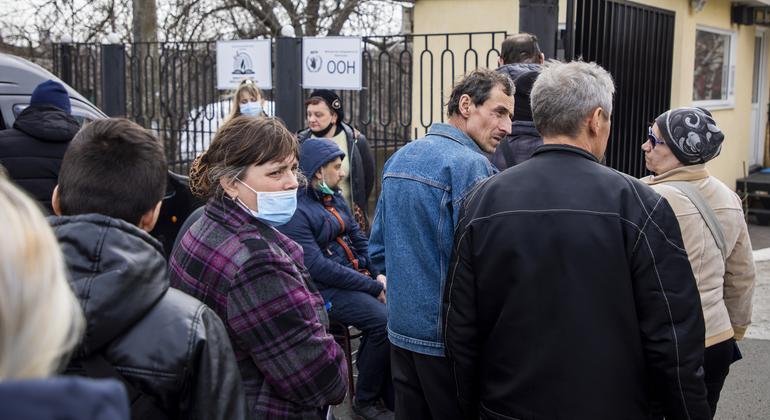Speaking from Kharkiv in northeast Ukraine, where shelling has intensified in the last week, the UN’s top aid official in the country issued an urgent appeal on Friday for guarantees from Russia and affiliated forces, to allow humanitarians to deliver “absolutely necessary” relief items across the contact line.
“Winter is coming,…[and] all we want to do [is] provide insulin to the hospitals, provide blankets, provide mattresses…it’s not complicated”, said Denise Brown, the Resident Coordinator for the UN in Ukraine.
Humanitarian Coordinator Denise Brown is starting today a three-day mission to eastern & central Ukraine to see first-hand the humanitarian impact of the war and the response.
This is her first visit to the east since she assumed her role in late July.
👉🏼https://t.co/FMCETRw43z pic.twitter.com/qVHcvYTclS— OCHA Ukraine (@OCHA_Ukraine) August 25, 2022
She is currently on a three-day mission to eastern and central Ukraine (Kryivyi Rih, Kharkiv and Dnipro) to assess the humanitarian situation first-hand.
‘Constant’ negotiations
Ms. Brown told reporters in Geneva that the UN was “constantly negotiating” for access, “up and down” the line that divides those fighting the war stemming from Russia’s invasion on the 24 February, in the south and east.
Ms. Brown also said that she had no way of confirming what relief items, “if anything”, Russia had reportedly sent to non-Government-controlled areas. Aid organizations “just have no reliable way of crossing the frontline”.
But she said that she was “hopeful that the Russian Federation will provide the security guarantees that we require to go across”.
So far they have “reached less than a million people in the non-government controlled areas” and she warned, “if farmers can’t reach their land, that’s going to have a huge impact on their economic situation.”
Fearful winter ahead
The UN aid coordinator also warned that winter is fast approaching in Ukraine and that she did not believe that vulnerable communities in the east and south had what they needed to survive.
Six months since Russia’s invasion, nearly 18 million people, around 40 per cent of the country’s entire population, need humanitarian aid.
Many elderly people were living in damaged houses and the lack of access to gas or electricity in large parts of the east “could be a matter of life or death” if people could not heat their homes, Mrs. Brown said in a statement.
Regarding OCHA’s plans for winter, Mrs. Brown explained, “we will have to work differently …we can only assume” that people caught in a war “do not have what is necessary to make it through,” the season, “which starts early and lasts long”.
Humanitarian community delivering
On a positive note, the Humanitarian Coordinator pointed out that the war has not prevented the humanitarian community from delivering: “Since the start of the war, we’ve reached over 12 million people,” providing “cash transfers, health care, shelter… access to clean water, protection, rehabilitation”.
Agricultural production is also “now finally moving” due to the UN-brokered Black Sea Grain initiative. This “will have an impact on families, on farmers and their communities and on the food insecure, particularly in the Horn of Africa right now,” she added.
Having met people uprooted by the war, Mrs. Brown said “morale and hope was still there”. While internally displaced people told her they are grateful for support from the UN and NGOs, they “still want to go home”.

